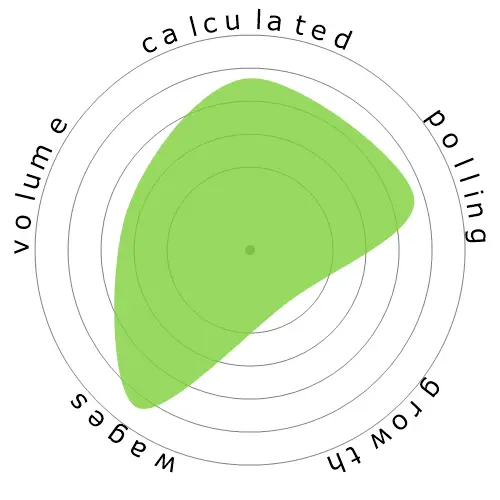Family Medicine Physicians




People also viewed
Calculated automation risk
Minimal Risk (0-20%): Occupations in this category have a low probability of being automated, as they typically demand complex problem-solving, creativity, strong interpersonal skills, and a high degree of manual dexterity. These jobs often involve intricate hand movements and precise coordination, making it difficult for machines to replicate the required tasks.
More information on what this score is, and how it is calculated is available here.
User poll
Our visitors have voted there's a low chance this occupation will be automated. This assessment is further supported by the calculated automation risk level, which estimates 19% chance of automation.
What do you think the risk of automation is?
What is the likelihood that Family Medicine Physicians will be replaced by robots or artificial intelligence within the next 20 years?
Sentiment
The following graph is included wherever there is a substantial amount of votes to render meaningful data. These visual representations display user poll results over time, providing a significant indication of sentiment trends.
Sentiment over time (yearly)
Growth
The number of 'Family Medicine Physicians' job openings is expected to rise 4.8% by 2033
Total employment, and estimated job openings
Updated projections are due 09-2025.
Wages
In 2023, the median annual wage for 'Family Medicine Physicians' was $224,640, or $107 per hour
'Family Medicine Physicians' were paid 367.4% higher than the national median wage, which stood at $48,060
Wages over time
Volume
As of 2023 there were 112,010 people employed as 'Family Medicine Physicians' within the United States.
This represents around 0.07% of the employed workforce across the country
Put another way, around 1 in 1 thousand people are employed as 'Family Medicine Physicians'.
Job description
Diagnose, treat, and provide preventive care to individuals and families across the lifespan. May refer patients to specialists when needed for further diagnosis or treatment.
SOC Code: 29-1215.00


Comments
Improved accuracy: AI systems can process and analyze vast amounts of medical data much more quickly and accurately than humans. This means that they can potentially diagnose illnesses with higher accuracy and specificity than family doctors.
Cost-effective: As AI technology continues to advance, it is becoming increasingly cost-effective to deploy AI-powered medical systems. This means that it may be more financially viable to use AI systems to provide medical advice and diagnosis than to employ a large number of human doctors.
Availability: Many people in remote or underserved areas may not have access to a family doctor. AI-powered medical systems can potentially provide medical advice and diagnosis to these populations, increasing access to healthcare.
Personalized care: AI systems can leverage large amounts of data to provide personalized medical advice to individuals. This means that patients could potentially receive more tailored and effective treatments than they would from a human doctor who may not have access to the same level of data.
24/7 availability: AI-powered medical systems can potentially provide medical advice and diagnosis 24/7, which may be particularly beneficial in emergency situations.
It is important to note, however, that the replacement of family doctors by AI systems is not without its challenges. One of the biggest challenges is the ethical considerations surrounding the use of AI in healthcare, particularly with regards to data privacy and informed consent. Additionally, there may be concerns around the accuracy and reliability of AI-powered medical systems, particularly if they are not properly tested and validated. Nonetheless, as AI technology continues to advance, it is likely that we will see increased use of AI-powered medical systems to complement or even replace human doctors in certain situations.
Leave a reply about this occupation